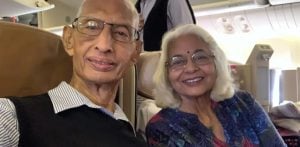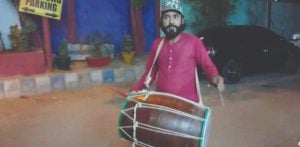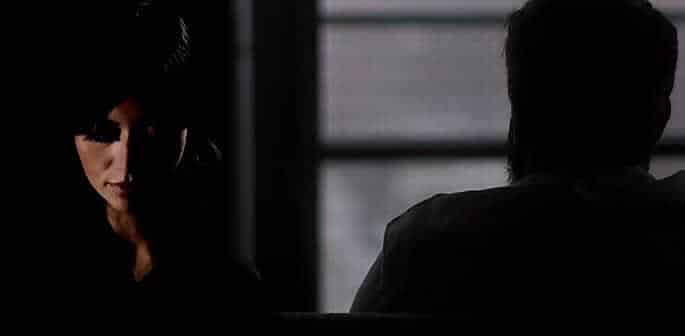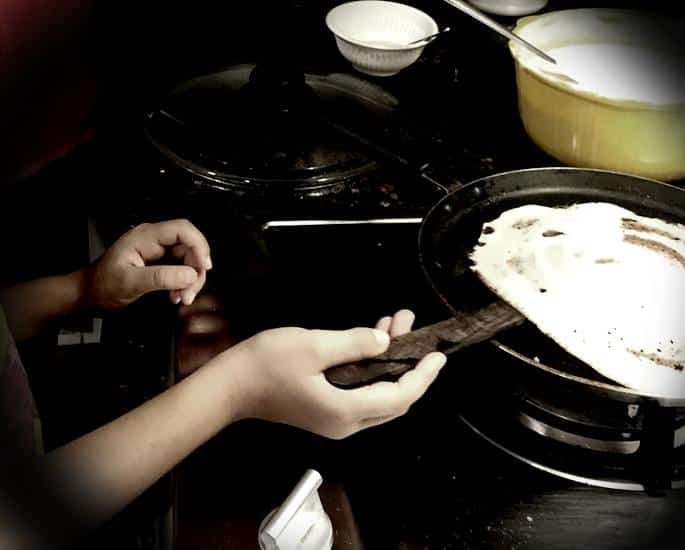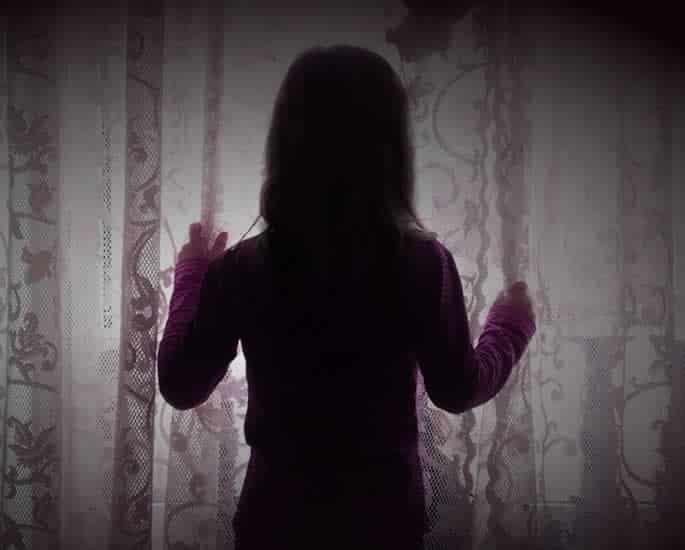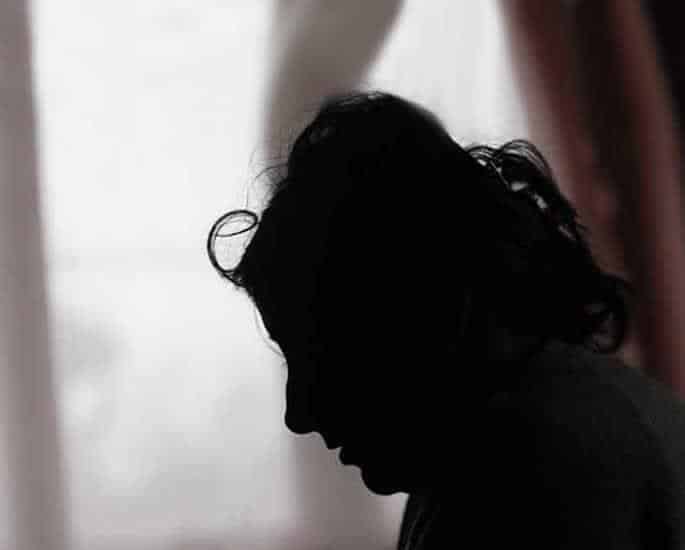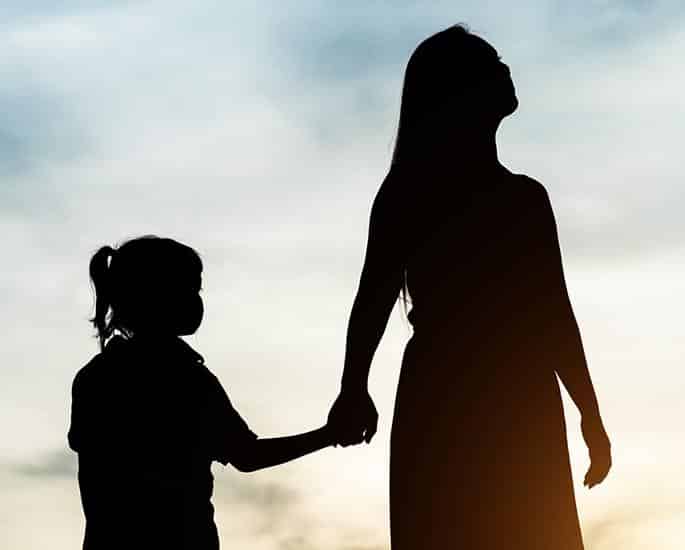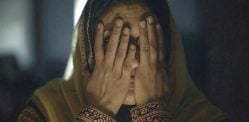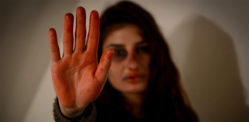“Nearly every girl I knew would go on ‘holiday’ and not come back."
The British Pakistani student, Shafelia Ahmed, was killed by her parents at the age of 17, in the name of honour, decades later, honour-based abuse still lingers in British South Asian culture.
Contrary to popular belief, honour-based abuse embodies more than isolated acts of violence.
Compromising family honour in any form can have dire consequences, including emotional and physical abuse, disownment and forced marriage.
The UK has seen a 53% increase in the number of honour-based abuse cases since 2014 – when forced marriage was criminalised.
DESIblitz delves into honour-based abuse and its many facets, as we speak exclusively with one survivor, Saima,* who shares her past harrowing experiences.
Now, an ambitious psychotherapist and affectionate mother, Saima shares her tumultuous journey and offers valuable advice to those in similar circumstances.
Early Years
From a very young age, Saima recalls multiple counts of verbal and emotional abuse from her mother.
The ruptured relations with her mother were made evident to her after seeing a stark difference in other mother and daughter relationships.
“If I ever went to my friends’ houses I would realise that their mothers were nice to them. So, I would always ask myself, ‘what was wrong with me then?’”
Consequently, she grew up with what she describes as a “skewed sense of self.”
“I have memories of around seven years of age, where I would have depressive episodes.
“I always felt empty and didn’t know why I was here. My only freedom was school.
“After I hit puberty, I was constantly told by my mother that I was ugly and fat.”
“That’s when I developed an eating disorder.”
As the only girl of four, Saima was expected to carry out household chores for the rest of her family. She recounts explicit instances of unfair treatment.
“I was starting to cook and clean by the age of 9 and I was told that if I were to go out there would be trouble.
“Whereas my brothers didn’t have the same duties.
“My mother always showed much more tenderness towards my brothers. She’d speak with them and have a laugh with them.
“But to me, she was very harsh – swearwords were always directed towards me, not to them.
“I would constantly question whether there was something wrong with me for her to treat me this way.”
Furthermore, with the absence of a supportive father, she felt even more isolated.
“My father was more educated than my mother.
“It makes me angry – he was more educated – yet he’d always support my mother over me.
“I wasn’t sure if that was just normal for him.”
The differential treatment was not taken seriously by her brothers. Whilst she suffered the consequences, for them, it was merely a ‘family joke.’
“They would say to me, ‘yeah, you’re a girl so you’re treated differently.’ They’d laugh about it and say it was my fault.”
Sexual Abuse
Her encounters with abuse intensified after an incident of sexual assault by a family friend at the age of 10.
After many years of silence, Saima opened up to her mother about her distressing ordeal.
Shockingly, the blame was shifted upon her.
“My mother was in denial. It was twisted on me.”
“She told me it was my own fault so I lived with that shame and guilt.”
“Years later and she still doesn’t feel bad about it.”
Though her brothers showed some sympathy, warped family dynamics silenced their compassion.
“They were angry. They told me they would ‘knock him out’ but it was very much not spoken of because my mother would say somehow it was my fault.
“He still comes to the house, I was still expected to make tea for him.”
Married Life
Saima’s parents had an arranged marriage when her mother was only sixteen years old.
Like her mother, Saima was also expected to follow in her mother’s footsteps and marry young.
“Nearly every girl I knew would go on ‘holiday’ and not come back.
“In my community by the time girls hit around 17 and they weren’t married there was something wrong with them.
“A girl going to university was seen as a bad thing – there was this fear that the girls must be watched.”
Like many young South Asian women, she was brought back to her homeland under the false pretence of seeing her grandmother – completely oblivious to what was expected from her after setting foot in Bangladesh.
She was also made to endure emotional blackmail, with her parents telling her that as the only grand-daughter, it was her duty to return to the motherland.
“From a young age, my senses have been heightened. I can read signs and was always on edge, as I never knew how my mother would react.
“One time I heard my mother mentioning over the phone that she would ‘buy something for the groom.’
“I knew I couldn’t question it because I couldn’t speak to her.
“My father was very sweet to me in this time. I craved his attention, so I agreed on returning home on the basis of coming back after two weeks.
“I had this feeling something else would be going on abroad – but I just wanted to be a good daughter.”
Her suspicions were soon confirmed, as she had her passport taken from her on arrival in Bangladesh.
She was then pressured into marriage, hoping somehow that this would be her only shot at escaping her bleak life.
To her dismay, married life granted her no solace.
“After the wedding, things were upside down. We had nothing in common. It felt like I was back home again.”
“I found myself continuously pleasing him, with no interest from his side.”
“He would play mind games with me. I was so trapped. I wanted to escape but I also wanted to conform because that’s all I knew.”
Post-Divorce Life
After enduring ten years in a destructive marriage, Saima finally made the bold decision to leave her husband and start a new life with her children.
Of course, this did not happen without an immense struggle.
“The children’s father came in with my family, begging to have me back, banging on the door with my father and brothers.
“There was so much verbal abuse. I was told that I had brought shame on the family.
“But by then I realised I could cope as a single mother. If my family cared they wouldn’t have done this to me.
“I continued my studies while I was still raising my children.
“To this day some of my siblings talk to me but I do sense tension with the odd comments said. They don’t agree with how I live my life or how I’m more outspoken; I believe they would prefer me to conform.”
As a survivor, Saima now recognises the colossal threat of honour-based abuse.
“When trauma is from someone that should love you, we don’t see it as abuse.
“People want to conform because they want to listen to their parents, these values are instilled into us.
“But what about your sense of self? If it weren’t for my studies, I wouldn’t be the way I am today. This has given me understanding and meaning to life.
“It was only once I had left the situation that I began to feel choice and feel liberated.”
“I have clients who were born into abuse and don’t recognise that they are in the situation. I see it all the time and it’s really sad but not uncommon to me.”
Years of stigma and ostracisation have certainly not gone unnoticed. She still carries concerns regarding how society’s prying eyes view her children.
“Sometimes these thoughts occur to me. What about my daughter? How will people look at her? It’s part of many people’s blueprints of how they are raised and brought up.”
She courageously admits to the trials confronted, but astutely points out that the trauma still loiters, regardless of all the support received.
“Once you’ve been abused, whether it’s forced marriage or honour-based violence, the repercussions can linger on for years and years.
“I’m one of those people who has lived and thankfully has gotten out of the situation.
“But I can’t say it still doesn’t impact me or that it still doesn’t challenge my emotions when I am faced with clients of similar issues. I have to ensure my own self-care through personal therapy and supervision to maintain my professionalism and best approach with my client work.”
Now, in a stable relationship, she feels more secure about herself – though her partner is not aware of all the fine details of her traumatic past.
“He knows partly. I want to work on myself and keep some things personal to myself. Maybe at some point, I will reveal all to him.”
Advice to Fellow Survivors
Having seen no alternative lifestyle, Saima assumed that her abusive household and forced marriage were merely a social norm.
“I listened to my parents. I conformed. I didn’t think it was ‘forcing,’ I thought it was just culture.”
Having braved the face of adversity at the hands of her conservative parents, Saima reveals that she has now reached a point of closure.
“I haven’t forgiven them – I’ve just come to accept them. That this was them, that this is what they thought was the right thing to do.
“Whether they realised it was wrong or not I will never know as there has been no ownership.
“I haven’t forgiven them. It has had a massive impact on me. But I’ve grown from these experiences.”
Saima cautiously offers advice to fellow abuse victims, empathising greatly with their struggles.
“It’s very difficult to give advice because when you’re in that situation and there’s so much emotional blackmail and manipulation, it’s hard to see.
“It comes down to acknowledgement, to know what is consent, what is arranged and forced marriage.
“Many parents may not realise that they are forcing their child, they may be following tradition or culture. The impact of a forced marriage can have so many effects psychologically, emotionally, sexually and financially.
“Seek help. Learn what abuse is. If something doesn’t feel right, speak to a professional.”
She continues to speak about stories from clients who find themselves in equally as torturous situations.
“I have many male clients who are forced to get married – who only do it for the sake of pleasing their parents and because they are afraid of the consequences.”
Saima raises a wise point, claiming many families are oblivious to the abuse they inflict upon their children.
“Are families even aware that they put their children through this?
“People must know the difference between consent and conforming. The more they talk about it the more we can know what to do. Forcing them into this situation is not the answer.”
Now, a doting mother of three, her bouts of abuse have forged a healthy relationship with her own children.
“I want to let them know that they have choices and boundaries. I want to allow them to make their own choices and evaluate right from wrong.
“Let them talk, educate themselves, have a voice and let them challenge others; even me.
“I want them to be heard. To learn from experiences.”
Through researching the many different facets and categories of abuse, it only recently came to her awareness that what she was made to endure was, in fact, a form of honour-based abuse.
“I’d call everything I went through honour-based abuse – it was always about keeping family name, about conforming, it was all under the blanket definition of honour.
“This had the most power over how everything else played out.”
Now, a psychotherapist, Saima faces dozens of clients in the position she was once in.
Her service provides a platform for trained professionals raising awareness on the issues of honour-based abuse in order to enable further knowledge and support for those at risk.
She provides a fascinating view of honour-based abuse, stating that from her experience, it can be just as much of a problem for men as it is for women.
“I can’t say specifically it affects women more than men.
“From working with clients, I’ve seen that pressure on men to be the ‘man’ of the family and carrying family name all come into play.
“I’ve also had gay clients who are pressured into getting married. There are so many issues that men in the south Asian community may face, especially as they are afraid of the consequences and abandonment from family and community.”
“A lot of it is about shame, to be expected to be a certain way and adhere to certain issues.
“Many men are afraid to speak out. They’re often not aware of what’s happening to them.”
Saima also indicates that honour-based abuse is not exclusively a South Asian problem.
“I have spoken to other cultures, English White people and Black people. They also may face pressures of marriage, such as having to marry someone of a certain background or a certain job.
“No culture is limited. Honour based abuse happens to all cultures, but arranged and forced marriage is mainly highlighted in South Asian families.”
In 2017 the government’s Forced Marriage Unit received almost 1,200 calls relating to potential forced marriages, where more than a quarter of the cases involved under 18s.
National statistics also show that between 12 and 15 people are killed in the UK in the name of honour.
These alarming figures illustrate the magnitude of the age-old issue of honour-based abuse.
As Saima concludes, “It’s a constant issue and people need to realise and identify that it’s wrong.”
If you are personally affected by any of the themes in this article, please do not hesitate to contact any of the following helplines:
Halo Project – 01642 683 045
Karma Nirvana – 0800 5999 247
Refuge – 0808 2000 247









